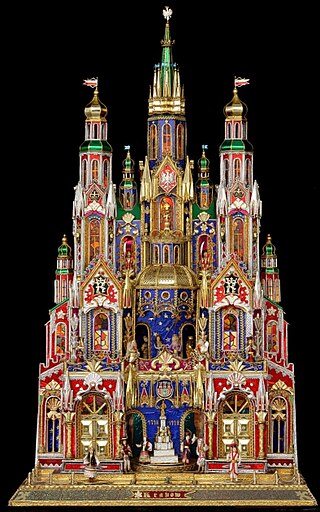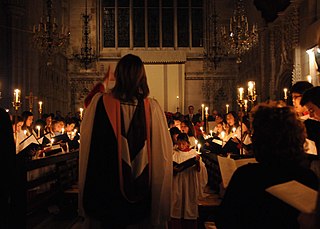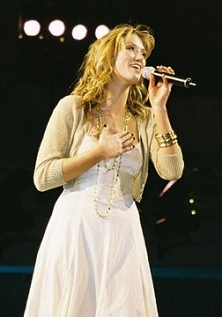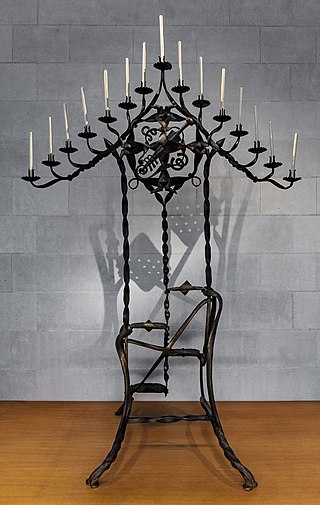
Christmas in Poland is a major annual celebration, as in most countries of the Christian world. The observance of Christmas developed gradually over the centuries, beginning in ancient times; combining old Polish pagan customs with the religious ones introduced after the Christianization of Poland by the Catholic Church. Later influences include the mutual permeating of local traditions and various folk cultures. It is one of the most important religious holidays for Poles, who follow a somewhat strict traditional custom. Christmas trees are decorated and lit in family rooms on the day of Christmas Eve. Other trees are placed in most public areas and outside churches. Christmas in Poland is called "Boże Narodzenie", which translates to 'God's Birth'.

Advent is a season observed in most Christian denominations as a time of expectant waiting and preparation for both the celebration of the Nativity of Christ at Christmas and the return of Christ at the Second Coming. Advent is the beginning of the liturgical year in Western Christianity. The name was adopted from Latin adventus "coming; arrival", translating Greek parousia from the New Testament, originally referring to the Second Coming.

A Christmas carol is a carol on the theme of Christmas, traditionally sung at Christmas itself or during the surrounding Christmas holiday season. The term noel has sometimes been used, especially for carols of French origin. Christmas carols may be regarded as a subset of the broader category of Christmas music.

Christmas Eve is the day before Christmas Day, the festival commemorating the birth of Jesus. Christmas Day is observed around the world, and Christmas Eve is widely observed as a full or partial holiday in anticipation of Christmas Day. Together, both days are considered one of the most culturally significant celebrations in Christendom and Western society.

Nine Lessons and Carols, also known as the Festival of Nine Lessons and Carols and Service of Nine Lessons and Carols, is a service of Christian worship traditionally celebrated on or near Christmas Eve. The story of the fall of humanity, the promise of the Messiah, and the birth of Jesus is told in nine short Bible readings or lessons from Genesis, the prophetic books and the Gospels, interspersed with the singing of Christmas carols, hymns and choir anthems.

The Advent wreath, or Advent crown, is a Christian tradition that symbolizes the passage of the four weeks of Advent in the liturgical calendar of the Western church. It is traditionally a Lutheran practice, although it has spread to many other Christian denominations.

An Advent calendar is used to count the days of Advent in anticipation of Christmas. Since the date of the First Sunday of Advent varies, falling between November 27 and December 3 inclusive, many reusable Advent calendars made of paper or wood begin on December 1. Others start from the First Sunday of Advent and thus include the last few days of November that begin the liturgical season of Advent.

Christmas is one of the biggest holidays in the Philippines. As one of the two predominantly Catholic countries in Asia, the Philippines celebrates the world's longest Christmas season ; Christmas music is played as early as August. The holiday season gradually begins by September, reaching its peak in December during Christmastide, and concludes within the week after New Year's Day; however, festivities could last until the third Sunday of January, the feast day of the Santo Niño de Cebú. Liturgically, the Christmas season is observed by the Catholic Church from the first day of Advent to Epiphany, which falls between January 2 and 8.

Carols by Candlelight is an annual Australian Christmas tradition that was popularised in Melbourne in 1938. The tradition has since spread around the world. It involves people gathering, usually outdoors in a park, to sing carols by candlelight, featuring live performances by both national and international celebrities accompanied by a symphony orchestra.

The observance of Christmas around the world varies by country. The day of Christmas, and in some cases the day before and the day after, are recognized by many national governments and cultures worldwide, including in areas where Christianity is a minority religion. In some non-Christian areas, periods of former colonial rule introduced the celebration ; in others, Christian minorities or foreign cultural influences have led populations to observe the holiday.

Tenebrae is a religious service of Western Christianity held during the three days preceding Easter Day, and characterized by gradual extinguishing of candles, and by a "strepitus" or "loud noise" taking place in total darkness near the end of the service.

Easter Vigil, also called the Paschal Vigil or the Great Vigil of Easter, is a liturgy held in traditional Christian churches as the first official celebration of the Resurrection of Jesus. Historically, it is during this liturgy that people are baptized and that adult catechumens are received into full communion with the Church. It is held in the hours of darkness between sunset on Holy Saturday and sunrise on Easter Day – most commonly in the evening of Holy Saturday or midnight – and is the first celebration of Easter, days traditionally being considered to begin at sunset.

The Christmas season or the festive season is an annually recurring period recognized in many Western and other countries that is generally considered to run from late November to early January. It is defined as incorporating at least Christmas Day, New Year's Day, and sometimes various other holidays and festivals. It also is associated with a period of shopping which comprises a peak season for the retail sector and a period of sales at the end of the season. Christmas window displays and Christmas tree lighting ceremonies when trees decorated with ornaments and light bulbs are illuminated are traditions in many areas.
A memorial service is a liturgical solemn service for the repose of the departed in the Eastern Orthodox and Byzantine Catholic churches.

Weihnachten is the observance of what is commonly known in English as Christmas in the German-speaking countries such as Germany, Austria and Switzerland. It is also widespread in countries with a German-speaking minority, such as Transylvania in Romania, South Tyrol in Italy, Eupen in Belgium, and various diasporas such as the German Brazilian and German American communities. Traditions of Weihnachten influenced Advent and Christmastide culture throughout the world.

In many Western Christian traditions, Midnight Mass is the first liturgy of Christmastide that is celebrated on the night of Christmas Eve, traditionally beginning at midnight when Christmas Eve gives way to Christmas Day. This popular Christmas custom is a jubilant celebration of the mass or service of worship in honour of the Nativity of Jesus; even many of those Christian denominations that do not regularly employ the word mass uniquely use the term "Midnight Mass" for their Christmas Eve liturgy as it includes the celebration of Holy Communion.

Blue Christmas in the Western Christian tradition, is a day in the Advent season marking the longest night of the year. On this day, some churches in Western Christian denominations hold a church service that honours people that have lost loved ones and are experiencing grief. These include parishes of Catholicism, Lutheranism, Methodism, Moravianism, and Reformed Christianity. The Holy Eucharist is traditionally a part of the service of worship on this day. This worship service is traditionally held on or around the longest night of the year, which falls on or about December 21, the Winter Solstice. There is an interesting convergence for this day as it is also the traditional feast day for Saint Thomas the Apostle. This linkage invites making some connections between Saint Thomas's struggle to believe in Jesus' resurrection, the long nights just before Christmas, and the struggle with darkness and grief faced by those living with loss.

The hanging of the greens is a Western Christian ceremony in which many congregations and people adorn their churches, as well as other buildings, with Advent and Christmas decorations. This is done on or directly before the start of the Advent season, in preparation for Christmastide. The service involves the placement of evergreen vegetation in the parish. Items such as the evergreen wreath, in Christianity, carry the religious symbolism of everlasting life, a theological concept within that faith. As such, during the liturgy, "Biblical passages and other readings help explain the significance of the holly, the cedar, the Advent wreath, the Chrismon tree, and any other special decorations". Christmas trees are frequently erected during the hanging of the greens, although they are sometimes left bare until Christmas Eve.

Plygain is a traditional Welsh Christmas service which takes place in a church between three and six o'clock in the morning, traditionally on Christmas morning.

Christmas traditions include a variety of customs, religious practices, rituals, and folklore associated with the celebration of Christmas. Many of these traditions vary by country or region, while others are practiced in a virtually identical manner across the world.


















